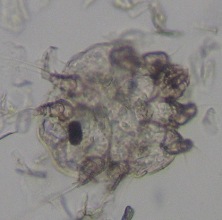Administering Fluids to Guinea Pigs
An ill guinea pig may not drink enough water on its own to do well. Your guinea pig may be dehydrated if you see any of these problems: thick sticky saliva, crusty eyes, poor appetite, small amounts of dark colored urine, or hard dry fecal pellets.
In order to correct dehydration, extra water must be given to your guinea pig. Sometimes this can be done by helping the guinea pig drink using a syringe. Some guinea pigs need to have fluids given by other methods, either by subcutaneous fluids, intravenous fluids, or intraosseous fluids.




